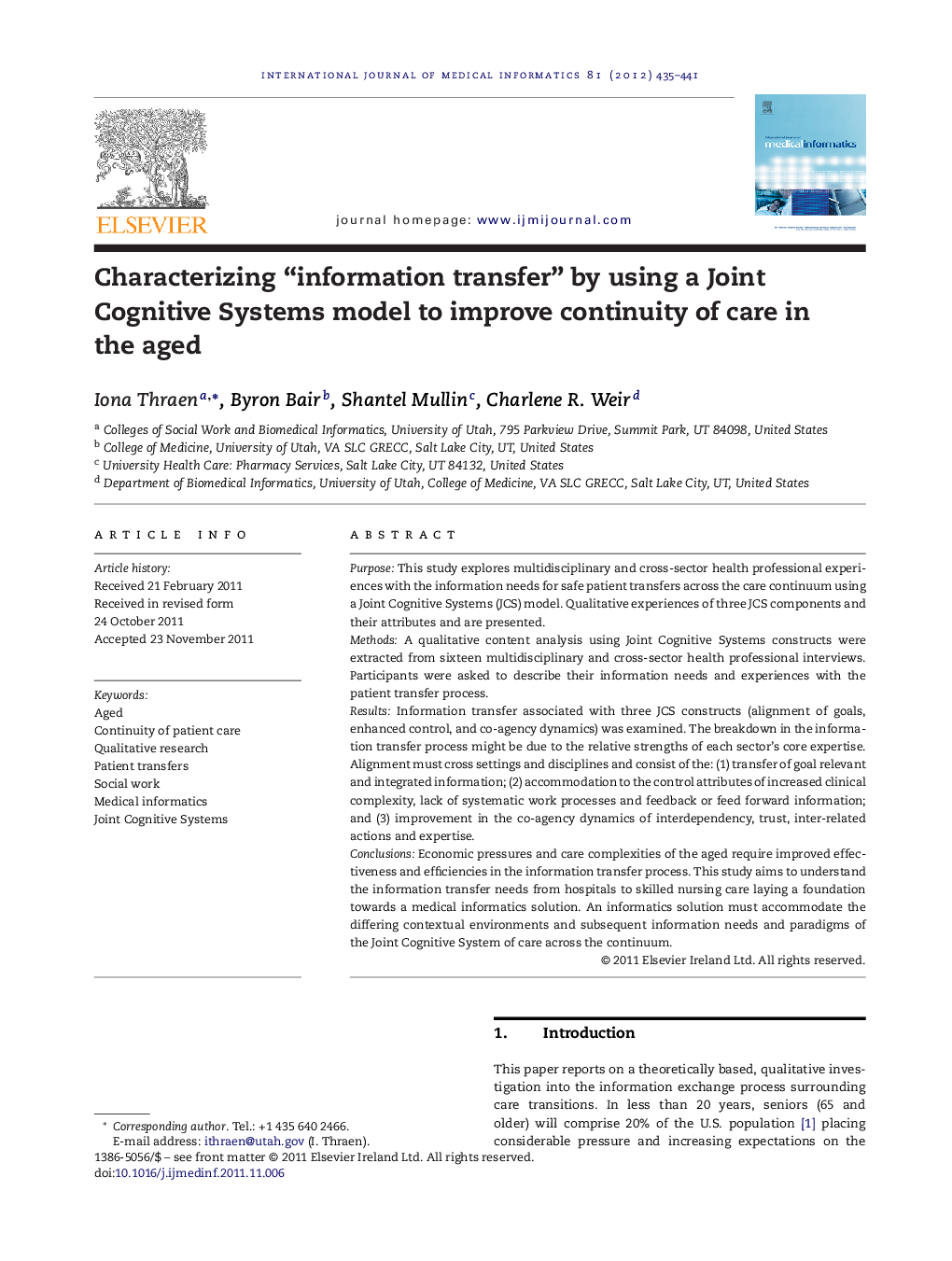| Article ID | Journal | Published Year | Pages | File Type |
|---|---|---|---|---|
| 516223 | International Journal of Medical Informatics | 2012 | 7 Pages |
PurposeThis study explores multidisciplinary and cross-sector health professional experiences with the information needs for safe patient transfers across the care continuum using a Joint Cognitive Systems (JCS) model. Qualitative experiences of three JCS components and their attributes and are presented.MethodsA qualitative content analysis using Joint Cognitive Systems constructs were extracted from sixteen multidisciplinary and cross-sector health professional interviews. Participants were asked to describe their information needs and experiences with the patient transfer process.ResultsInformation transfer associated with three JCS constructs (alignment of goals, enhanced control, and co-agency dynamics) was examined. The breakdown in the information transfer process might be due to the relative strengths of each sector's core expertise. Alignment must cross settings and disciplines and consist of the: (1) transfer of goal relevant and integrated information; (2) accommodation to the control attributes of increased clinical complexity, lack of systematic work processes and feedback or feed forward information; and (3) improvement in the co-agency dynamics of interdependency, trust, inter-related actions and expertise.ConclusionsEconomic pressures and care complexities of the aged require improved effectiveness and efficiencies in the information transfer process. This study aims to understand the information transfer needs from hospitals to skilled nursing care laying a foundation towards a medical informatics solution. An informatics solution must accommodate the differing contextual environments and subsequent information needs and paradigms of the Joint Cognitive System of care across the continuum.
